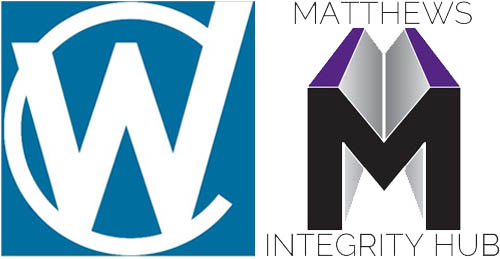Degrees: What are they all about?
Degrees are everywhere
In the past 10 years or so, the number of degree subjects servicing the asset integrity industry has mushroomed. These have spread from purely technical subjects such as advanced NDT, integrity evaluation etc into asset integrity planning, asset ‘lifetime management, and combinations with other degree-level topics in oil industry business and management. The larger oil & gas companies (they like this sort of thing) incorporate some of these into their training schemes and, there’s some impressive-sounding degree titles around. In smaller companies, opinions differ about why these degrees are necessary and what is the point of it all.
So what are they for?
It is all about training your mind apparently. Your participation, willing or otherwise, in the endless carousel of mathematical examples, laboratory reports and suchlike, will train your grey cells to address similar, problems in your future career – and you will be able to understand and do all manner of wonderful things.
This might be true but history shows that it’s not absolutely essential. Most of the steps and discoveries over the past thousands of years were made by people under 25, without any qualifications at all – which are a very recent development.
Looking at it a bit more objectively, the need for an engineering degree today is based on three main criteria. You can’t think of them in isolation; they exist as part of a set, each of which has little effectiveness without the assistance of the others.

1. A benchmark of achievement
Industries seem to like benchmarks, as it gives them something to aim for, or against which they can measure their success. As a benchmark for industry, degrees work reasonably well without being wonderful. Oil companies and large technical companies use them as part of their recruitment policy, giving them some clue as to who to invite to interviews and who not.
The actual detailed content of degree courses are a bit of mystery to many inspection industry recruiters. The content of most benchmark qualifications are set in academia rather than the inspection ‘customer’ organisation themselves, who are too busy. Coupled with the requirements of HR people, the result is that an engineering degree becomes a prerequisite for entering the recruitment and interview process for large organisations. The bigger the organisation, the more they like degrees.
2. All technical knowledge is useful
The biggest advantage of an engineering degree is the knowledge feedstock it provides you with. It may be surrounded by the usual doubtful skills of management, sales, communication, and the like, but strip these away and it is an almost perfectly technical subject. You cannot progress without a critical mass of this technical information, much of which is packaged in the engineering degree syllabus.
3. A degree is a time-filter
This one works for the graduate. The time and effort required to achieve an integrity-related degree gives you a chance to see if you like the subject. If it proves not to be for you then it’s best to find out sooner rather than later, to prevent your career becoming a necessary daily chore.
Any other advantages of a degree?
A degree will increase your chances of long-term employability, if you are any good. This may, or may not, offer good financial reward depending on which area of the subject you end up in. These are a few excellent salaries in the integrity industry, a lot of good ones and some where you would make more driving a taxi. Your eventual destination will be decided by the sum total of your ability, willingness to seek knowledge, and the choices you make along the way.
That’s more or less why degrees are around in the integrity industry, and what they do
Read our other articles on this subject Which degree should you choose? and How to pass your degree
HECSU reports are worth a look
HECSU (Higher Education Careers Service Unit) is an independent research charity specialising in higher education and graduate employment. Their claimed role is to support careers advisory services as they guide students and graduates through university and into the labour market. They do produce some excellent reports of relevance to undergraduates and graduates so it’s worth a look at their website on www.hecsu.ac.uk
Moving your career on
If you want to know more about how to develop your career once you are already in the integrity industry then go to our Integrity Job Roles page and have a look at the article Integrity Job roles: What’s NEW
Matthews Integrity Hub: HEAD OFFICE is OPEN EVERY DAY….0730 – 2200 Monday – Sunday…That’s correct, all week, every week, including holidays
 If we happen to miss your call, leave a message and we will call you back just as soon as we pick it up. Sorry, there’s no automated messages, call queueing, voice recognition tools or canned music. Try it and see.
If we happen to miss your call, leave a message and we will call you back just as soon as we pick it up. Sorry, there’s no automated messages, call queueing, voice recognition tools or canned music. Try it and see.
CONTACT US
Tel: 07746 771592 help@matthewsintegrity.co.uk





